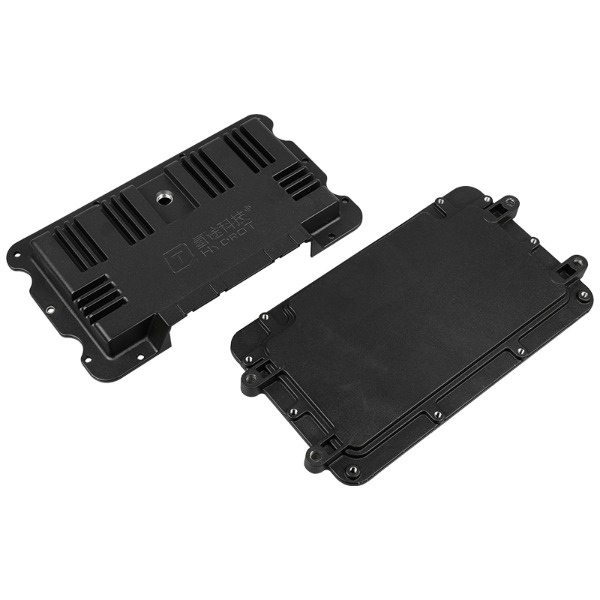Introduction:
As the world increasingly turns to renewable energy sources, solar power has emerged as a leading contender. Photovoltaic systems, which convert sunlight into electricity, play a crucial role in harnessing solar energy. One essential component of these systems is the photovoltaic inverter, which converts the direct current (DC) produced by solar panels into alternating current (AC) that can be used to power homes and businesses. To ensure optimal performance, manufacturers have turned to aluminum die casting to produce high-quality and efficient photovoltaic inverter parts. But why are photovoltaic inverter aluminum die casting parts vital for solar energy conversion?
1. Lightweight and Durable:
Photovoltaic systems are often installed in outdoor environments, where they are exposed to harsh weather conditions. Photovoltaic Inverter Aluminum Die Casting Parts allows for the manufacturing of lightweight yet strong and durable parts for photovoltaic inverters. The use of aluminum ensures that the parts can withstand environmental stresses such as temperature fluctuations, humidity, and UV radiation, making them ideal for long-term outdoor use.
2. Efficient Heat Dissipation:
Photovoltaic inverters generate heat during the energy conversion process due to electrical losses. Effective heat dissipation is essential to maintaining the inverter's efficiency and prolonging its lifespan. Aluminum has excellent thermal conductivity properties, facilitating efficient heat dissipation. By using aluminum die casting, manufacturers can design photovoltaic inverter parts with intricate cooling fins and heat sink structures, enhancing heat dissipation and ensuring stable operation even under high operating temperatures.

3. Design Flexibility:
Photovoltaic Inverter Aluminum Die Casting Parts offers design flexibility, allowing manufacturers to create complex shapes and features that optimize the functionality and performance of photovoltaic inverter parts. The intricate designs enable the integration of additional components such as capacitors, resistors, and connectors into the die-cast parts. This integration not only saves space but also enhances the overall efficiency and reliability of the photovoltaic inverter.

4. Cost-effective:
The cost-effectiveness of Photovoltaic Inverter Aluminum Die Casting Parts is another significant advantage for photovoltaic inverter manufacturers. By utilizing the die casting process, manufacturers can produce large quantities of complex parts at a high production rate, reducing manufacturing costs. Moreover, aluminum is a readily available and affordable material, making it a cost-effective choice for producing photovoltaic inverter Photovoltaic Inverter Aluminum Die Casting Parts without compromising on quality or performance.

5. Corrosion Resistance:
Photovoltaic systems are often exposed to a range of environmental conditions, including moisture and corrosive elements. Photovoltaic Inverter Aluminum Die Casting Parts provides a protective oxide layer that enhances corrosion resistance, ensuring that the photovoltaic inverter parts can withstand prolonged exposure to outdoor elements without compromising their functionality.
6. Enhanced Electromagnetic Compatibility (EMC):
Photovoltaic inverters need to comply with electromagnetic compatibility regulations to minimize electromagnetic interference and ensure safe operation. Photovoltaic Inverter Aluminum Die Casting Parts can be designed to incorporate shielding structures that help reduce electromagnetic emissions and enhance EMC performance. This capability is crucial in meeting regulatory standards and ensuring the reliable operation of photovoltaic systems.
7. Sustainability:
As the world becomes increasingly conscious of environmental sustainability, aluminum die casting aligns with these values. Aluminum is a highly recyclable material, and the die casting process itself creates minimal waste. The ability to recycle and reuse materials further reduces the environmental impact associated with the production of Photovoltaic Inverter Aluminum Die Casting Parts.
In conclusion, photovoltaic inverter aluminum die casting parts are essential for solar energy conversion due to their lightweight and durable nature, efficient heat dissipation capabilities, design flexibility, cost-effectiveness, corrosion resistance, enhanced electromagnetic compatibility, and sustainability. The constant advancement in die casting techniques ensures that photovoltaic inverter manufacturers can produce high-quality parts that enable efficient and reliable conversion of solar energy into usable electricity. With the continued growth of solar power in the renewable energy sector, the importance of photovoltaic inverter aluminum die casting parts will only continue to increase.






 EN
EN English
English 中文简体
中文简体 Deutsch
Deutsch


















